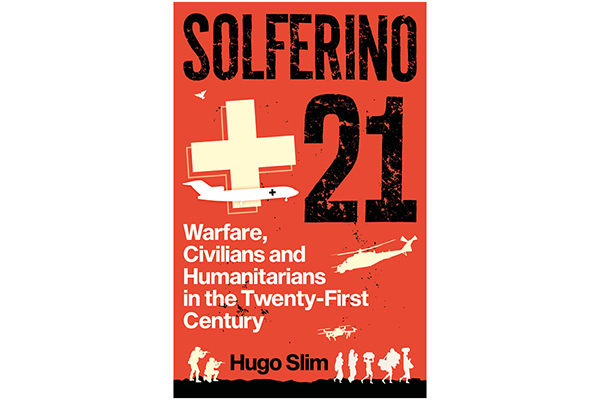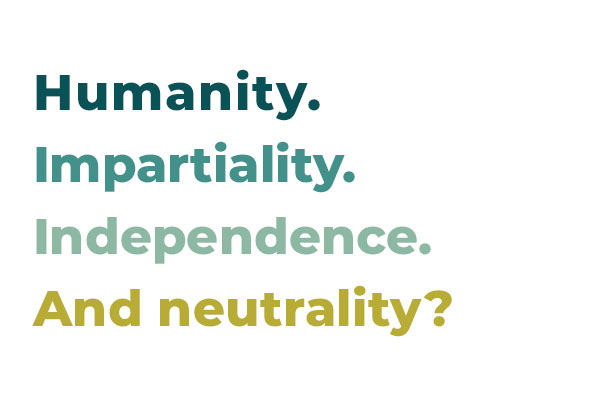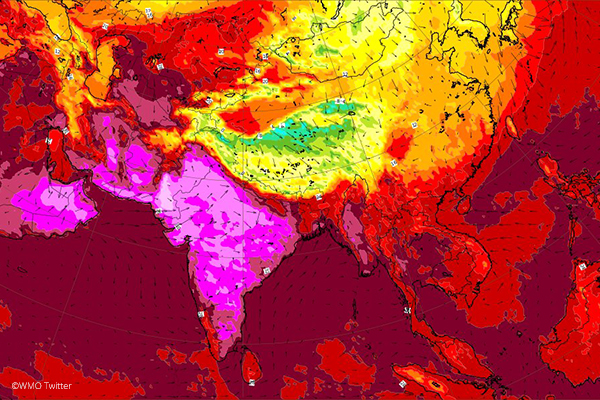| Date: | 19.05.2022 |
| Time: | 16:30 - 18:00 |
| Location: | Refugio, Berlin and Zoom |
Book Launch & Discussion with Hugo Slim,
Senior Research Fellow at the Las Casas Institute for Social Justice, Oxford and author of “Solferino 21 – Warfare, Civilians and Humanitarians in the Twenty-First Century”
160 years after Henri Dunants Book on the Battle of Solferino, which became fundamental for modern humanitarianism, Hugo Slim wrote a reflection on new warfare, cyber wars and its implications for much needed reform of the humanitarian sector. Right after Hugo Slim had finished his work, the escalation of the armed conflict in Ukraine has started and kicked off the debate about a “Zeitenwende” even beyond the security and humanitarian issues discussed in this timely publication.
To mark the launch of the book in Berlin, German Red Cross and CHA invited to a panel discussion about Hugo Slim’s theses and its implications for humanitarian action in the light of the Ukraine war with:
- Dr Hugo Slim, author of “Solferino 21 – Warfare, Civilians and Humanitarians in the Twenty-First Century”
- Dr Ferdinand von Weyhe, Head of Division, Humanitarian Assistance, International Disaster Response, Humanitarian Mine Action, German Federal Foreign Office
- Julia Meixner, Deputy Head, Operations & National Society Cooperation, German Red Cross
- Irina Boicheva, Head of Strategic Partnership and International Relations, National Committee of Ukrainian Red Cross Society
facilitated by Ralf Südhoff, Director Centre for Humanitarian Action and with opening remarks by Christof Johnen, Director of International Cooperation at German Red Cross.
The event was recorded:
Chapters:
00:00 Welcome by Ralf Südhoff
01:03 Introduction by Christof Johnen
04:46 Audience survey regarding statements from the book
09:30 New Warfare – Dr. Hugo Slim about the book
18:34 Towards simpler Humanitarian Aid?
24:06 How does the book relate to the War in Ukraine?
25:39 Humanitarian aid in Ukraine today – Irina Boicheva
38:08 Are great power conflicts coming back? – Dr. Ferdinand von Weyhe
46:45 Humanitarians in Protracted Crisis
48:18 National Societies and Localization– Julia Meixner
53:09 Does neutrality prevent true localization?
1:04:18 Input and comments from the online participants
1:07:55 Great power confrontations, localization with super agencies– Dr. Hugo Slim
1:13:00 How can local action not be dominated by superagencies? – Irina Boicheva
1:16:40 The German contribution to the humanitarian task – Dr. Ferdinand von Weyhe
1:21:10 Is the humanitarian system reformable? – Julia Meixner
1:22:36 Audience Questions and comments
1:32:36 Humanitarian growth, necessary reform and big data – Dr. Hugo Slim
1:37:44 How does digitalization help and/or hinder humanitarian aid in Ukraine – Irina Boicheva
1:41:43 Donor responsibility, political interests, solidarity – Dr. Ferdinand von Weyhe, Julia Meixner
1:47:00 Closing statements from the panel
Quotes:
Hugo Slim
12:30 “…now we’re at a tipping point from industrial warfare to computerized warfare”
13:18 “Our warfare today is very different … the center of the frame now, is the female civilian. Rather than the wounded male.”
17:11 “in fact, if you look at the middle of the 20th century, if you look at the Korean war and probably if you look at the bombing of Vietnam by the Americans and others in the Vietnamese American war you’ll see much greater direct violent deaths of civilians than we’ve seen in the 20 years so far.”
20:21 “I think increasingly, if we have big conflicts between authoritarian cultures and liberal cultures, there’ll be no room for that kind of liberal humanitarianism in authoritarian space. Therefore, it’s really important that we also build national networks of …a more basic, simpler humanitarianism…so that lives are saved…”
22:11 “Wherever you can, and in anything you do, you should be saying, how can I keep it simple. How can I seek simplicity in this approach”?
25:15 on localization and the Ukraine war “…don’t have a second, humanitarian invasion of hundreds of people and agencies coming in to tell Irina exactly what to do and when to do it”
56:14 “There has always also been a liberationist tradition, that people have also done humanitarian aid with political commitments. So, they’ve always said “I’m on the side of this conflict and my purpose in this conflict will be to save as many lives as I can but I have taken sides. And that to me is a perfectly legitimate, ethical commitment. And you can still be absolutely respecting the principle of humanity and not be neutral.”
Irina Boicheva
30:15 “Men are staying in Ukraine…maybe we’re not putting a lot of focus on men in the humanitarian sphere.…Usually it’s the elderly, it’s women, children but in a war context, men are also very affected.”
32:48 “Local organizations are in the middle of everything. They’re experiencing a lot of pressure from the public, from their own citizens, from the government, from the international community. And at the same time the local organizations are simply Ukrainians who are suffering and dealing with the same problems as any person now in my country.”
37:26 “It’s now really impossible to define the most vulnerable [people]. Every case is something difficult and very sad.”
1:14:25 on how to be a complementary international org. “It’s simply to find compromise not really to fill in the indicators and to create parallel structures. Try to be complimentary – to use the privilege of the competence of different actors.”
1:38:55 on digitalization in Ukraine during the war “It’s really a great benefit that the government is doing such great things. Because even to apply now for some cash support from governmental programs is only one click in the phone. People all over the country can apply and save time not staying in the violence in front of the state department.”
Dr. Ferdinand von Weyhe
45:30 “It is very important – and I do have the feeling that we sometimes underestimate that – to have a really conflict sensitive approach. To what extent does humanitarian assistance have an impact on the conflict situation, to which extent it plays into power games. I think from a pure humanitarian perspective we sometimes neglect that point.”
1:03:29 “I do see this necessity of neutrality for humanitarian assistance especially in times of war. If we start giving this up […] as parties to the conflict – Who will I trust to be neutral anymore? […] For humanitarian assistance neutrality is key.”
Julia Meixner
49:41 “Localization needs to be spiced up, right? If we want to avoid the superstructures, the complexity, we have to be serious about Localization so it’s not only about transferring X amount of money but what are we actually doing with that.”
“Really empowering local structures is a difficult task in particular when contexts are getting more complicated. In Ukraine now we have a rather clear solidarity with one party, but in not a lot of countries, this is the case.”
51:20 “ At one point we have to be honest about the limitations of the western system. The limitations of funds, the limitations of our capacities to actually move things. So, honesty is maybe one, unpacking, getting simpler and restarting to listen.”
“It’s very scary because you can do a lot of things wrong, so what we tend to do is to find a way to limit the risk for ourselves for our donors, to just phrase it somehow that is more comfortable for us. But it does not necessarily reflect the reality of the people we actually want to serve and support. I think we have to reverse this.”
1:45:45 “How big is our solidarity with the ones who will lose within globalization? And I think this is something where we are tested, and we will be tested even more.”
Dr Hugo Slim is a British academic and policy advisor in International Relations specialising in the ethics of war and humanitarian aid. He writes about the nature of contemporary conflict, the protection of civilians and the ethics of humanitarian aid. Previous books are e.g. Humanitarian Ethics: The Morality of Aid in War and Disaster and Killing Civilians: Method, Madness and Morality in War. He is currently a Senior Research Fellow at the Las Casas Institute for Social Justice at Blackfriars Hall at the University of Oxford and also at the Blavatnik School of Government.






